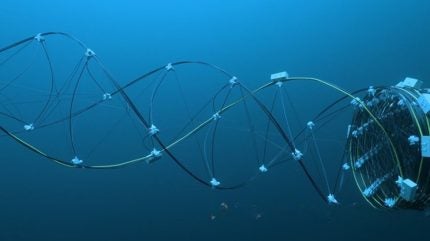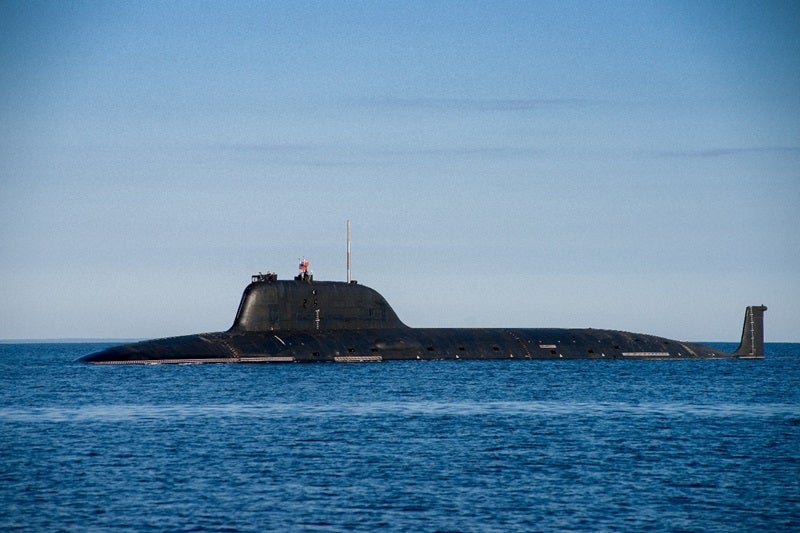
American defence prime, Anduril, and British naval systems supplier, Ultra Maritime, will team up in subsea sensing to detect and monitor enemy submarines.
Anduril’s stealthy, long-distance Dive XL uncrewed underwater vehicle (UUV) will deploy the Seabed Sentry payload system, which in turn will host Ultra’s Sea Spear sonar sensing array.
Once deployed, the 21-inch diameter Sea Spear slowly uncoils with the flow of a current until the system is silent and stiff, at which point it will begin to detect sounds underwater. The sonar system uses acoustic communications and Anduril’s Lattice software to provide users with real time, autonomous submarine sensing.
Naval Technology spoke with the CEO of Ultra Maritime, Carlo Zaffanella, about the need for a network of Sea Spear assets as well as their new partnership with Anduril.
Active and passive network
Russia has never stopped investing in submarines, even after the collapse of the Soviet Union. The Yasen-class, for example, the first post-Soviet designed nuclear-powered attack submarines, are the most lethal and stealthy boats in Russia’s fleet.
Experts have warned navies of the need to improve their situational awareness in the opaque and impenetrable undersea environment, where Russian submarines stalk global waters.

In this context, Sea Spear is useful for its affordable cost and scalability to deliver mass, allowing forces to leverage acoustic data from a “meaningful network,” Zaffanella emphasised.
“We are able to detect submarines, but it would be much better if we have a number of these over a number of kilometres, and then we drop an active source in the water, like a sonobuoy which transmits.
“Now you’re listening for the reflections of that transmission off of an enemy submarine, and now you can hear extremely well. So this can work in passive mode, but then it can work in this multi static active mode.”
Tapping into Europe
The announcement of this industrial partnership comes at a time when the United States is distancing itself from European allies.
Just last week, the US Department of Defense indicated that Defense Secretary Pete Hegseth planned to attend a meeting in Panama which may conflict with the Ukraine Defence Contact Group on 11 April at Nato headquarters in Brussels, a gathering that America had led until recently.
These transatlantic political divisions are seeping into industry; European governments and companies are calling for strategic autonomy in the defence sector, especially after the US implemented tariffs.
In March 2025, the chief executive of MBDA, Europe’s foremost complex weapons manufacturer, indicated that the group would be ready to deliver fully sovereign systems to customers when asked to do so.
While Ultra Maritime is a well-established naval systems supplier with a global footprint, it is worth noting the company is based in the UK.
When asked about the European trend, Zaffanella said that anti-submarine warfare is a “very complex science” and that “there are a few companies”, Anduril among them, that “are genuinely skilled at doing this sort of work.”
He continued: “In the first place, you need performance. You need the ability to solve this problem in a known way with the targets of interest; you need to be able to do it at scale. And there’s really very few ways that you could do that.”



